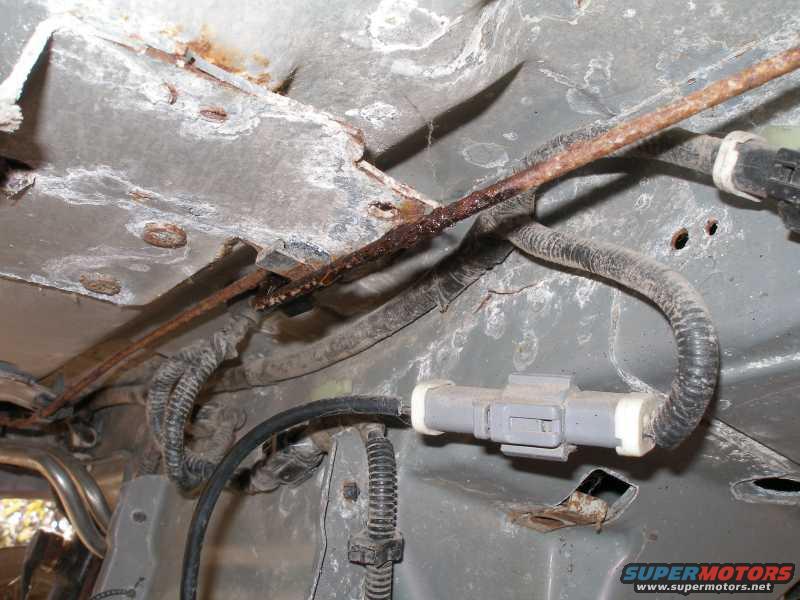320 Years of History
Gold Member
Red:It's called due diligence, if you don't do it, you are asking for trouble.The brake lines in my GMC Sierra 3500 dually failed and I lost brakes.if a hypothetical suburbanite named Ned Flanders kills me in a car wreck because their brake line failed and investigators found out the lines were craked would you support throwing Ned Flanders in jail for homicide or something?Not sure what you are getting at here.My feeling is people also should have a liability factor in keeping "non bubbled" tires on their cars or whatever. Its difficult to hit 70 year old Marge after an accident with a good 5 year criminally negligent homicide charge if her tires were obviously bad.
they rusted out.
Seems that GM knew about this and instead of fixing the faulty lines, they put out a statement saying that it was the responsibility of the owner to keep his brake lines cleaned and inspected once a year.
Like, WTF is going to climb under their pickup truck once a year to wash and wax brake lines.
No GM brake line recall, Govt says wash your car
Dude I worked with wrecked his 2000 Siverado...brake hardline failed due to corrosion, he went into a tree and totalled the truck. The truck had been inspected (by a dealer) less than six weeks previous.
Also, some brake lines corrode & fail at locations that cannot be seen. (Offhand, some Tauruses would corrode above the fuel tank.)
Be that as it may, there remains a span of time after which one can reasonably expect that some degradation in brake performance due to brake line failure is more likely than it is less or un likely. For example, "According to the NHTSA, roughly seven years of exposure to winter road salts is enough for a model year 2007 vehicle to be susceptible to brake line corrosion."
I doubt that anyone thinks or expects inspections to catch and eliminate every form of equipment failure; however, performing them regularly, acting on what one finds when the inspection shows potential issues, and using good judgment re: things that may not be readily visible to most owners during a cursory "look see" will catch the vast majority of them.
Off topic, but for the sake of comparison:
One need only consider airplane pre-flight testing that pilots (are supposed to) do prior to every flight. I don't know how much you fly on commercial planes, but if you fly a lot, you've surely found yourself sitting on the plane waiting for a piece of equipment to show up and be replaced before leaving the gate. I know I've experienced that at least three times a year. General aviation pilots/crews make the same checks before every flight as well, or at least they are supposed to. Surely you don't think that those inspections have no bearing on the very, very low rates of planes falling from the sky?
To put that into perspective, between 1990 and 2006, there were 158 airline fatal crashes due to equipment failure, which accounted for 23% of all fatal airplane accidents. Of the 158, eight had something to do with landing gear and tires. There are over 100K airplane flights per day per year, and there are ~20K active commercial airplanes in operation. In the U.S. there are about 9.5 million flights per year. Approximately 7000 planes perform those flights.
When it comes to inspecting and reacting responsibly to the results of checking the tire pressure can reduce the risk of a crash happening. The National Highway Traffic Safety Administration’s website safercar.gov reports that worn tires cause nearly 11,000 crashes and 200 deaths annually. There are approximately 256M passenger vehicles in the U.S.
How do airplanes and passenger vehicles compare?
- (equipment failure airplane crashes between 1990 and '06 ÷ 17 years) = an average of 9.2 crashes per year due to equipment failure (EF) per year
(landing gear/tire related crashes between 1990 and '06 ÷ 17 years) = an average of 0.47 crashes due to landing gear failure per year (LGF)
(EF ÷ 9,500,000) = 0.000096842105263158% = annual rate of global EF crashes assuming U.S. flights account for all of them - (11,000÷256,000,000) = 0.004296875000000000% = annual rate of U.S. tire related car crashes in the U.S. based on the data above

